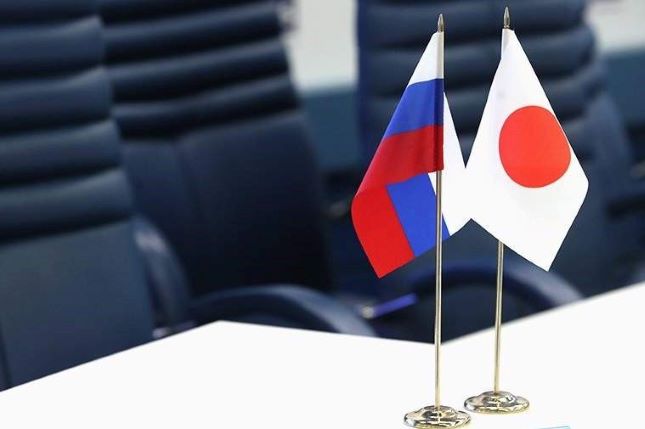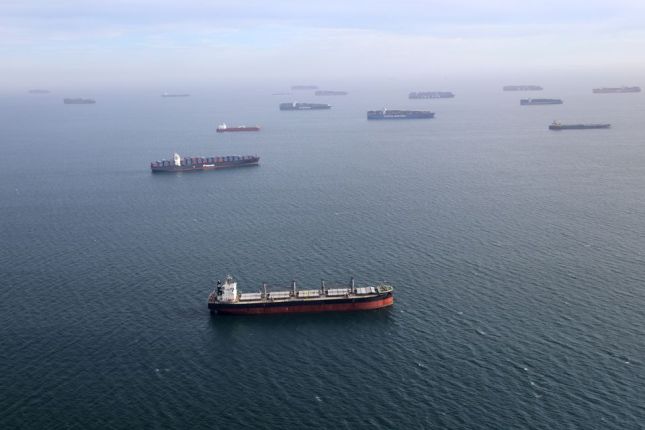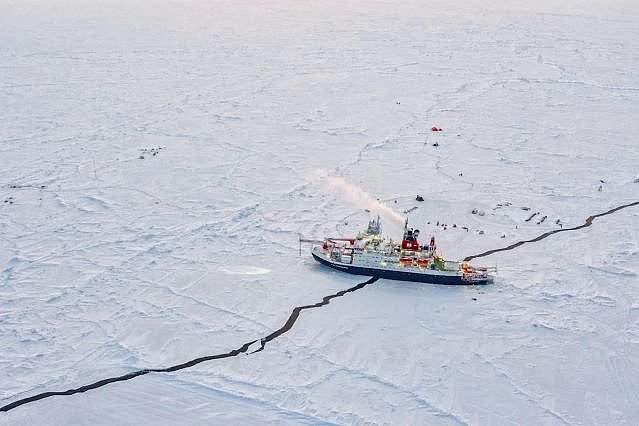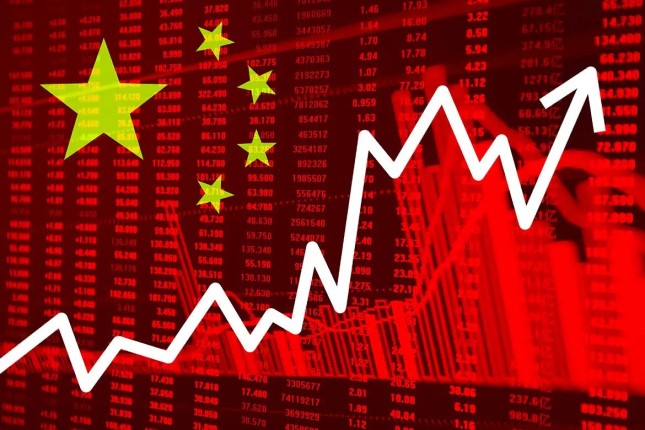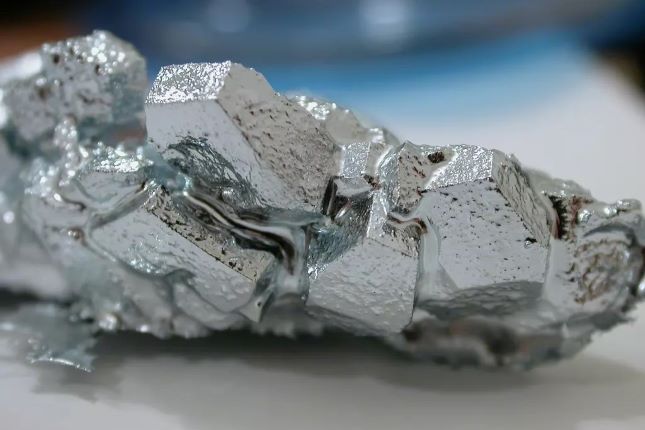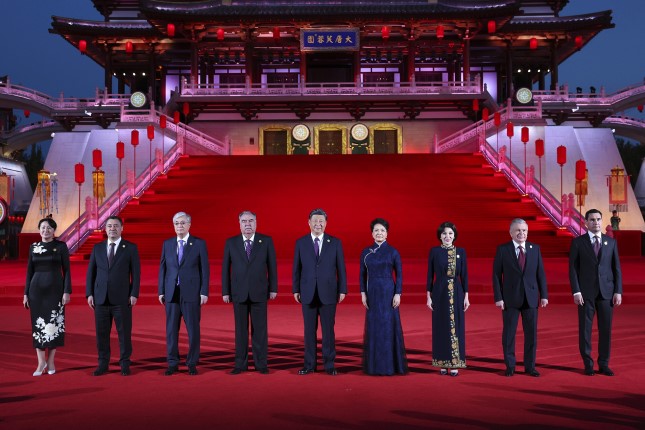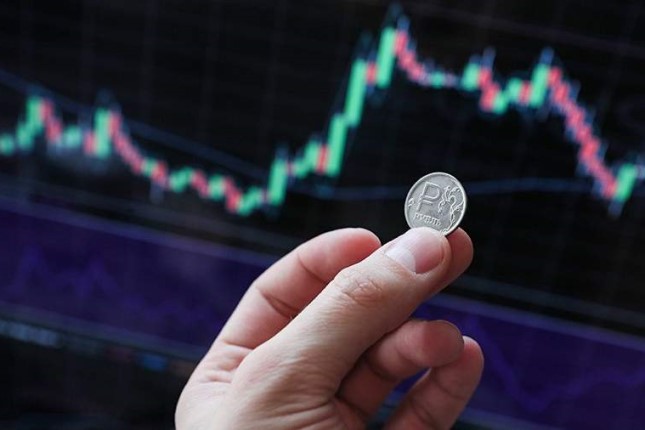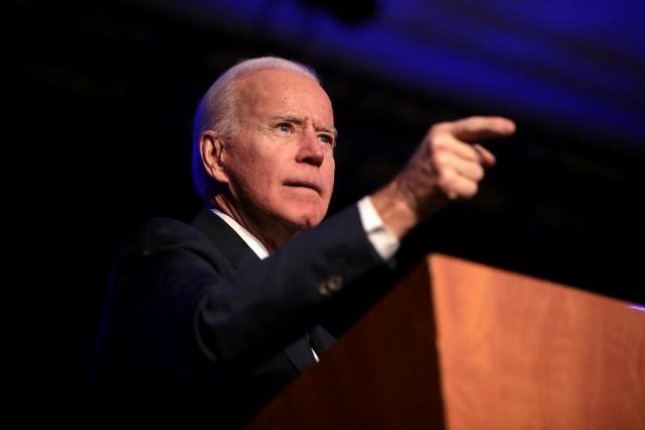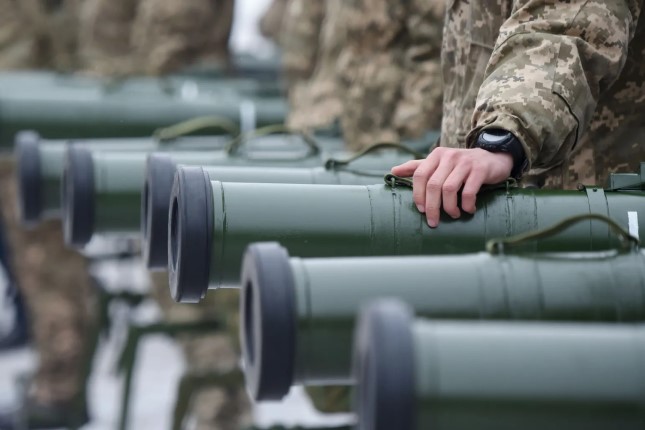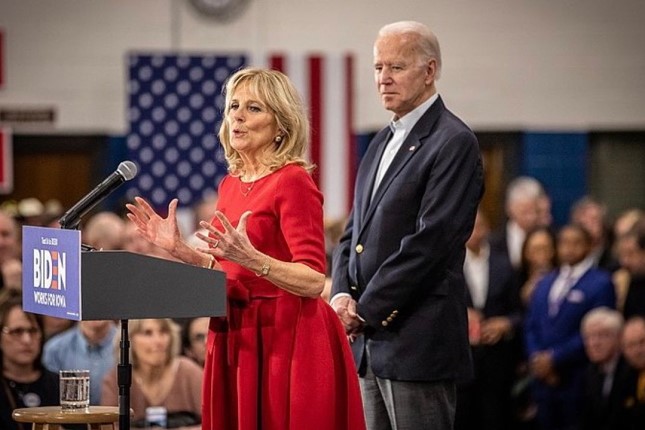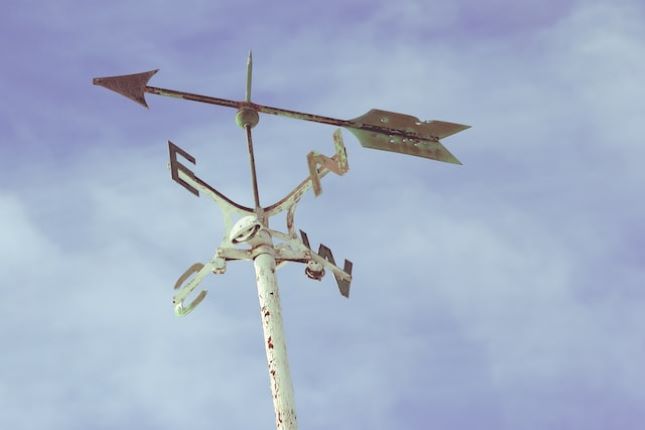Anti-Russian sanctions emphasise the difference between East and West. Japan hurried to join the Western coalition against Russia, but Japanese politicians and businesses chose not to sever their trade partnerships with Russia, especially regarding energy.
Unlike European governments, Japanese leaders never forget their national interests and feel up to explain to their G7 partners (first and foremost the US) that their country is not prepared to make up for the yearly USD 10 billion in losses that would be incurred should they abandon their projects on the Sakhalin island. The Japanese are very well aware that the global focus of development is drifting away from the Atlantic world toward Southeast Asia, and they have their priorities there.
In no habit of rushing
With all the pressure the US is putting on Japan, only four out of 168 major Japanese companies (Toyota, Nissan, Bridgestone, and Uniqlo) decided to withdraw from the Russian market, which is less than 3%.
Notably, many companies that chose to stay in Russia support the sanctions officially, maintain a cautious stance, and expect to continue operating in Russia. Of all G7 members, Japan has the lowest share of companies opting to leave the Russian market. By way of comparison, it is 48% for the UK.
As a Japanese proverb says: "Don't hesitate to bend a little, and you will stand straighter when you straighten up." Just as Japanese business is in no hurry to slam the door, the new Japanese government is ignoring the Western media's growing rhetoric about Tokyo's apparent duality, the need to completely break up with Russia, stop buying hydrocarbons and participating in the Sakhalin-1, Sakhalin-2, and Arctic LNG-2 projects.
Japan's Oriental wisdom suggests that it is not the best time for abrupt moves against its northern neighbour. Officially, Japan has introduced no restrictions on Russian hydrocarbon imports.
The country's government has no plans to shut down its Ministry of Economic Cooperation with Russia, headed by the Minister of Economy, Trade, and Industry. The Intergovernmental Committee on Trade and Economic Issues set up by the two countries continues working, too.
Hydrocarbons in Japan's energy balance
Japan has to import almost every kind of natural resource. Liquefied natural gas and coal are two of the most used energy sources, with a combined share of 31% in Japan's energy balance as of 2021.
Japan is the world's third largest coal importer, with an annual consumption of 113 million tonnes of coal imports from Russia, accounting for 13% (14.7 million tonnes) in 2021. Since May 2022, Japan has halved shipments from Russia and increased purchases from Australia and Indonesia.
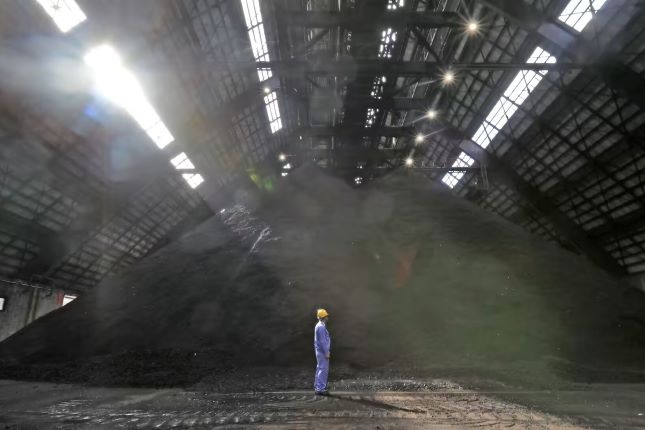
A coal depot at Sakata Kyodo Coal Power Plant in Sakata, Yamagata Prefecture. Photo: Nikkei Asia / Ken Kobayashi.
Japan is the world's second net importer of LNG after China. Japan's total LNG imports in 2021 were 74.3 million tonnes. Russian gas from the Sakhalin-2 project accounted for 8.8% of Japan's total LNG imports.
Crude oil from Russia accounts for a modest 4% of oil imports and originates mainly from Sakhalin-1. In 2021, Russia became the fifth-largest oil supplier, exporting 6 million tonnes.
Unlike Europe, Japan is sceptical about renewable energy sources, albeit, in the last year, it assumed more obligations to decrease the use of fossil fuels and shift to renewable energy. Against 2021's 23%, by 2030, Japan plans to increase the share of renewable sources to 36–38%. However, given the ongoing battle over traditional resources, Japan is cautious about betting too much on solar and other elemental energies, trying to avoid the fatal blunders committed by the West. Additionally, most Japanese are wary about nuclear power, making the refusal to use hydrocarbon fuels even less likely.
Gold glitters brighter than Buddha
Japan knows how to count money and respects it. Imports of Russian fuel may have fallen, but its value has increased by more than 45% compared to last year.
Energy sources and electricity price hikes are painful, as is the unprecedented inflation rate of 2.5% seen in the April of this year. The whole government resigned because of it. Meanwhile, Germany's inflation amounted to 7.4%, and the US's stood at 8.5%.
The increasingly high LNG costs have already resulted in energy shortages. The steps Japan makes to handle the issue are very similar to those taken by European countries, with Tokyo Electric Power, the electricity operator, urging people to learn to economise in the run-up to winter.
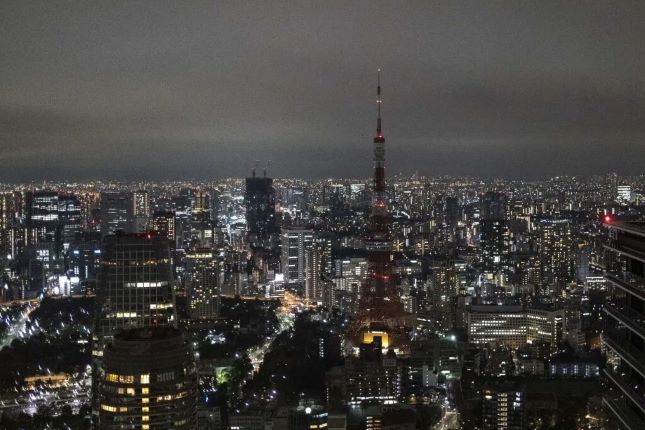
The Tokyo Tower is seen with its lights turned off after 9pm as part of energy-saving measures following a government electricity supply warning for the capital and surrounding areas, in Tokyo on March 22, 2022. Photo: Getty Images.
LNG production is expected to reach 455 million tonnes this year, but 70% of the amount will be supplied under long-term contracts, with the rest sold at the spot market, where competition results in record-breaking prices.
How can one be supposed to refuse to buy Sakhalin gas under such long-term contracts and at such low prices, which no longer exist and will never exist anymore?
The Anglo-Saxons tried to encourage Japan as best they could, but Japanese consumers were unwilling to pay more or spend the three winter months with only a kind word (American word in this case) to warm themselves.
Japan is ready to buy more American LNG, but not at the cost of declining Russian supplies. The US is habitually tempting Japan, offering it an opportunity to invest in gas production in Alaska. It will take an estimated USD 45–65 billion in investment and at least four or five years. This will also entail infrastructure and shipping costs, given that it would never be cheap to deliver LNG from Alaska at a distance of 5,500 km.
Here are the president's orders for you
The Russian president signed a decree to transfer all rights to the Sakhalin-2 LNG project from the Sakhalin Energy operator to the Russian entity Sakhalinskaya Energiya. The news shocked Japan, as LNG purchases from the Sakhalin-2 project account for 8.8% of its total liquefied natural gas imports. Once recovered from the shock, Japan's Ministry of Economy, Trade, and Industry asked Mitsui and Mitsubishi, which have 12.5% and 10% stakes in the project, respectively, to stay under the Russian operator.
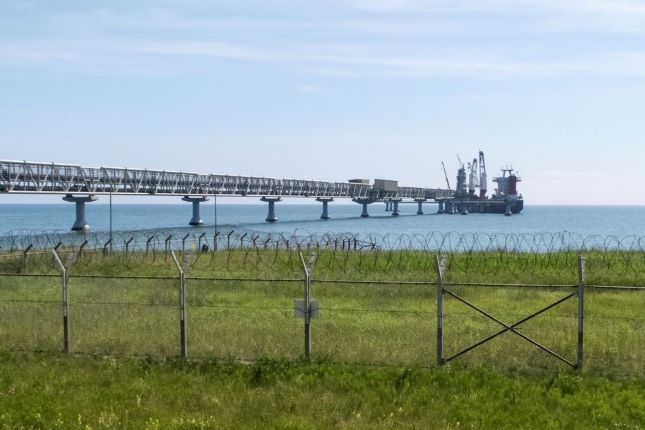
A general view of the liquefied natural gas plant operated by Sakhalin Energy at Prigorodnoye on the Pacific island of Sakhalin, Russia July 15, 2021. Photo: Reuters / Vladimir Soldatkin.
Since July, Japan has been reconsidering its position regarding the unacceptability of using Russian oil and participating in Russian oil and gas projects. It has also prudently informed the US of its plans to keep its stakes in Sakhalin-2.
In June, Japan reported to the West that it was no longer importing any oil from Russia, but news came that imports resumed in July. The Ministry of Economy, Trade, and Industry never disclosed the exact amount of the purchased oil, focusing on the fact that they bought 65% less oil than they did during the same period in the previous year.
By now, a consortium formed by Mitsui and JOGMEC, without making any loud statements, continues participating in Arctic LNG-2 and financing it for the 10% stake it holds in it. If all goes according to plan, Japan will receive LNG from the project's first line in the amount of 0.7 million tonnes per year as early as 2023.
It is essential for Russia that Sakhalinskaya Energiya has started to operate Sakhalin-2 and will receive payments for LNG supplies through Gazprombank.
Given the lack of time, Japan made a wise decision. By now, all Japanese buyers of Sakhalin-2's LNG have agreed to renegotiate their contracts with the new operator.
According to Japanese media, Mitsui and Mitsubishi plan to inform Russia in the first decade of September that they will continue participating in Sakhalin-2 under the Russian operator. The Japanese will likely agree to follow the new rules because if they don't, the vacated supplies will be taken over by China and India.
So, Russia is calmly waiting for a response from Mitsui and Mitsubishi.
